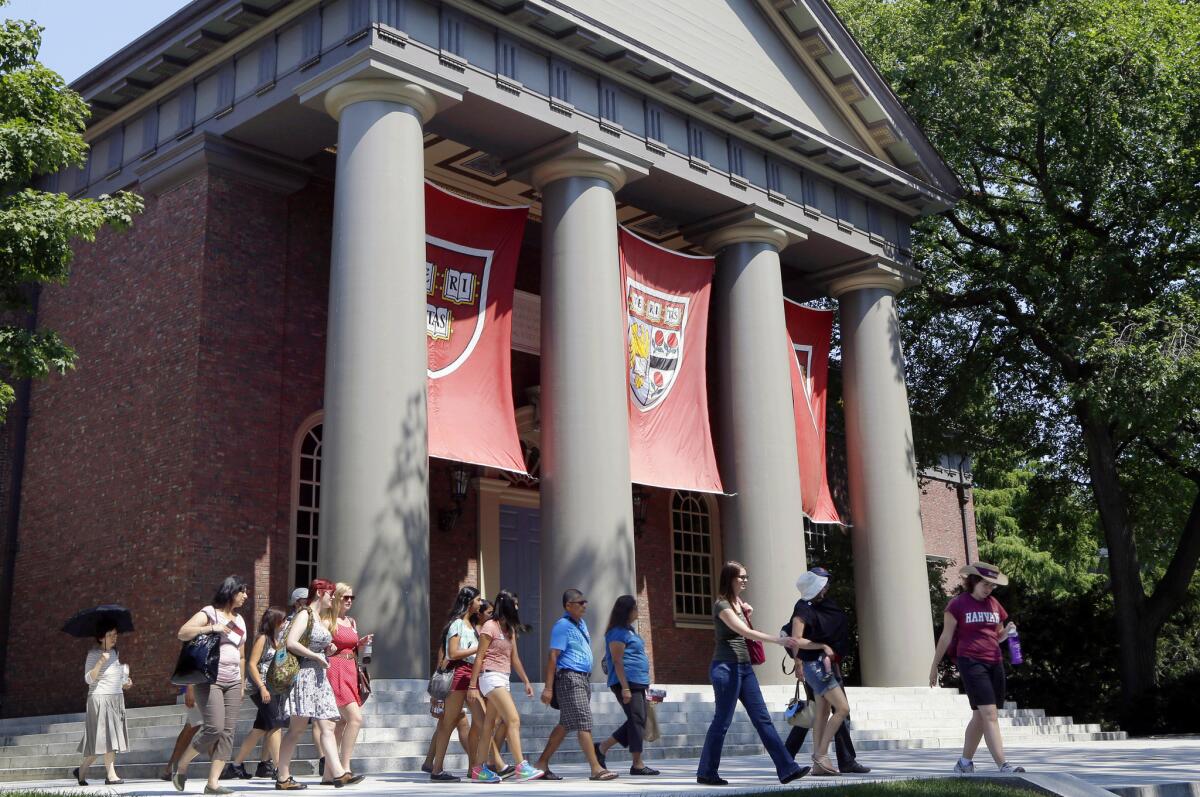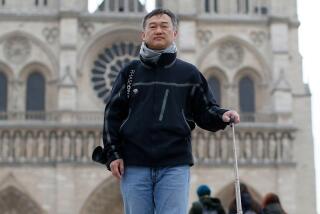Harvard chemistry department head charged with lying about China ties

- Share via
The chairman of Harvard University’s chemistry department was charged with lying to the U.S. Defense Department about his involvement in efforts to recruit people to pass along research to the Chinese government in exchange for lab funding, salaries and other benefits.
Charles Lieber, who the U.S says is also affiliated with Wuhan University of Technology in China, was charged Tuesday in federal court in Boston. Prosecutors said he received more than $1.5 million to establish a lab and do research at Wuhan University, and that he was paid hundreds of thousands more over several years.
“This is not an accident or a coincidence,” U.S. Atty. Andrew E. Lelling said at a news conference in Boston. “This is a small sample of China’s ongoing campaign to siphon off American know-how and technology for China’s gain.”
Prosecutors said Lieber lied to Defense Department investigators about his involvement with Wuhan University and the “Thousand Talents Plan,” a Chinese government program to recruit overseas researchers. His deceit caused Harvard to make false statements to the National Institutes of Health about his work with China, because grants that Harvard received required disclosure of ties with foreign governments, the U.S. said.
Lieber’s biography page at Harvard lists him as an honorary fellow of the Chinese Chemical Society. He was arrested Tuesday morning and will appear later before a federal magistrate, according to a spokeswoman for the Massachusetts U.S. attorney’s office.
A spokesman for Harvard didn’t immediately respond to a request for comment.
According to prosecutors, Lieber hid from both the U.S government and Harvard his work for the Chinese university dating to 2011. In a five-year contract with Wuhan, Lieber’s personal research company agreed to make “strategic” scientific proposals, supervise young teachers, conduct nationally “important” projects and take other steps to benefit the school.
The charges come amid intense scrutiny U.S. law enforcement officials are applying to ethnic Chinese scientists and, now, U.S. researchers.
Agencies across the federal government have mobilized against potential Chinese industrial spies, warning companies and universities and anyone else with intellectual property to be particularly vigilant when dealing with Chinese business partners and employees who might be what Christopher Wray, the director of the FBI, calls “nontraditional collectors” of information.
Last year, a University of Kansas researcher, Franklin “Feng” Tao, was charged with hiding that he was working full time for a Chinese university at the same time he was doing U.S-funded industrial research.
Lieber, a native of Philadelphia, attended Franklin and Marshall College in Lancaster, Penn., where he graduated with honors in chemistry, according to his Harvard biography. He completed doctoral studies at Stanford University and post-doctoral research at Caltech before joining Columbia University as an assistant professor in 1987.
He moved to Harvard in 1991, where he serves as chair of the department of chemistry and chemical biology.
Lieber has won more than a dozen awards for his work, most recently in September from the Welch Foundation in Houston, which honored Lieber and another professor for their “important research contributions which have had a significant, positive impact on humankind.”
More to Read
Sign up for Essential California
The most important California stories and recommendations in your inbox every morning.
You may occasionally receive promotional content from the Los Angeles Times.













